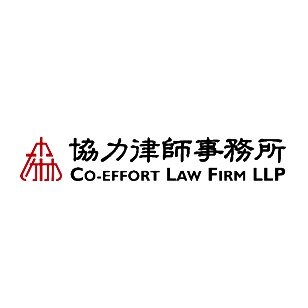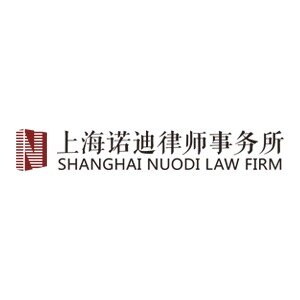Best Private Equity Lawyers in China
Share your needs with us, get contacted by law firms.
Free. Takes 2 min.
Or refine your search by selecting a city:
List of the best lawyers in China
About Private Equity Law in China
Private equity (PE) in China refers to investments made by funds or investors directly into private companies or into public companies that are then delisted from public stock exchanges. Over the last two decades, China has developed a robust private equity market, attracting both domestic and international investors. Private equity investments in China play a significant role in fostering innovation, supporting business expansion, and promoting corporate growth. The sector is regulated by a set of evolving rules and requirements, often influenced by the Chinese government's goals for economic development and financial stability.
Why You May Need a Lawyer
Private equity transactions are legally complex and often involve multiple regulatory agencies, cross-border elements, and high-value negotiations. Common scenarios where legal assistance is essential include:
- Structuring and negotiating investment agreements and termsheets
- Conducting legal due diligence on target companies
- Navigating approval processes with regulatory authorities such as the China Securities Regulatory Commission (CSRC) and the Ministry of Commerce (MOFCOM)
- Ensuring compliance with the Foreign Investment Law when foreign investors are involved
- Addressing currency controls and remittance of funds in and out of China
- Managing disputes among stakeholders or between investors and companies
- Ensuring proper exit strategies, such as IPOs, trade sales, or mergers and acquisitions
An experienced lawyer can help safeguard your interests, draft valid contracts, and ensure transactions meet all legal and regulatory requirements in China.
Local Laws Overview
The private equity sector in China is governed by a mix of laws, regulations, and administrative rules. Some of the most significant legal aspects include:
- Fund Registration and Supervision: All private equity funds operating in China must register with the Asset Management Association of China (AMAC). This process involves demonstrating compliance in areas such as fund structure, capital sourcing, and ongoing reporting obligations.
- Foreign Investment Restrictions: The Foreign Investment Law, effective from January 2020, streamlines the approval process for foreign investors but certain industries remain restricted or prohibited for foreign capital.
- Investment Approval Process: Investments, especially those in sensitive sectors, may require approval from regulatory agencies. The Negative List specifies sectors that are restricted or off-limits to foreign investors.
- Capital Controls: China maintains strict rules on the inflow and outflow of capital. Remitting profits or proceeds from exits overseas may require approval from the State Administration of Foreign Exchange (SAFE).
- Taxation: Tax laws apply to private equity transactions, including capital gains tax and value-added tax (VAT). Recent reforms have aimed to streamline tax obligations but complexities remain, particularly for cross-border deals.
- Dispute Resolution: Contracts often stipulate dispute mechanisms involving domestic courts or international arbitration. Enforcement of foreign judgments in China may face obstacles.
- Anti-Monopoly and Anti-Corruption: Private equity investments must comply with China's Anti-Monopoly Law and anti-corruption requirements, especially during mergers or acquisitions of large enterprises.
Frequently Asked Questions
What is private equity, and how does it work in China?
Private equity involves investing in private companies or performing buyouts of public companies. In China, private equity funds pool capital from investors to acquire, restructure, or grow businesses, often with active management to boost value before exiting the investment.
Are there any industry restrictions for private equity investments in China?
Yes, the Chinese government maintains a Negative List that restricts or prohibits investment in certain sectors, particularly for foreign investors. These can include industries such as telecommunications, education, and media.
Do foreign investors need special approvals to invest in Chinese private equity funds?
Foreign investors may be subject to approval processes, especially if investing in restricted sectors. The Foreign Investment Law and associated regulations will determine whether a specific transaction requires clearance.
How are private equity funds structured in China?
Most private equity funds are structured as limited partnerships or as company-type funds. Registration with the AMAC is required, and specific structuring is influenced by tax planning, investor makeup, and regulatory compliance.
What are the tax implications for private equity investors in China?
Taxation may include capital gains tax and, in some cases, value-added tax or withholding tax for foreign investors. The exact tax treatment depends on the structure of the fund, type of investment, and investor residency.
What due diligence steps are important for private equity deals in China?
Key due diligence steps include validation of licenses and permits, financial audits, verification of ownership and title to assets, compliance with environmental and employment laws, and review of pending litigation or liabilities.
How can investors safely remit funds in and out of China?
There are strict currency control regulations overseen by SAFE. Legal guidance helps to structure transactions and comply with registration or approval requirements for inbound and outbound payments.
What are the most common exit strategies for private equity in China?
Popular exit strategies include initial public offerings (IPOs), trade sales, and secondary buyouts. Exits may be complicated by regulatory approval processes and market conditions.
How are disputes in private equity transactions typically resolved in China?
Disputes are usually addressed through negotiation or, if specified in the contract, arbitration. China recognizes certain international arbitration awards, although enforcement of foreign court judgments can be challenging.
Why is it important to use local legal counsel for private equity matters in China?
Chinese laws and regulations are often subject to interpretation and local practice. Experienced local legal counsel ensures compliance, handles government relations, and provides guidance that reflects current regulatory trends.
Additional Resources
For more information or guidance, you may refer to the following organizations and governmental bodies involved in private equity regulation in China:
- Asset Management Association of China (AMAC)
- China Securities Regulatory Commission (CSRC)
- State Administration of Foreign Exchange (SAFE)
- Ministry of Commerce of the People's Republic of China (MOFCOM)
- China Association of Private Equity (CAPE)
- China Investment Association (CIA)
- Local trade chambers and professional services firms specializing in cross-border transactions
Next Steps
If you are considering entering the private equity market in China or are involved in a specific transaction, the following steps are recommended:
- Identify your investment goals and gather key information about the target company or fund.
- Consult an experienced local private equity lawyer or law firm to assess legal and regulatory requirements relevant to your situation.
- Prepare for a thorough due diligence process and ensure all transaction documents are professionally drafted and compliant with local laws.
- Stay updated on regulatory changes that may impact your investment or operations in China.
- If you encounter disputes or regulatory roadblocks, seek prompt legal assistance to protect your interests and find optimal solutions.
Competent legal guidance is essential for navigating the complexities of private equity in China and ensuring your investments are legally secure and commercially successful.
Lawzana helps you find the best lawyers and law firms in China through a curated and pre-screened list of qualified legal professionals. Our platform offers rankings and detailed profiles of attorneys and law firms, allowing you to compare based on practice areas, including Private Equity, experience, and client feedback.
Each profile includes a description of the firm's areas of practice, client reviews, team members and partners, year of establishment, spoken languages, office locations, contact information, social media presence, and any published articles or resources. Most firms on our platform speak English and are experienced in both local and international legal matters.
Get a quote from top-rated law firms in China — quickly, securely, and without unnecessary hassle.
Disclaimer:
The information provided on this page is for general informational purposes only and does not constitute legal advice. While we strive to ensure the accuracy and relevance of the content, legal information may change over time, and interpretations of the law can vary. You should always consult with a qualified legal professional for advice specific to your situation.
We disclaim all liability for actions taken or not taken based on the content of this page. If you believe any information is incorrect or outdated, please contact us, and we will review and update it where appropriate.
Browse private equity law firms by city in China
Refine your search by selecting a city.















